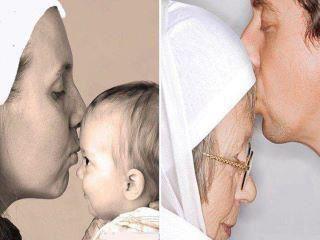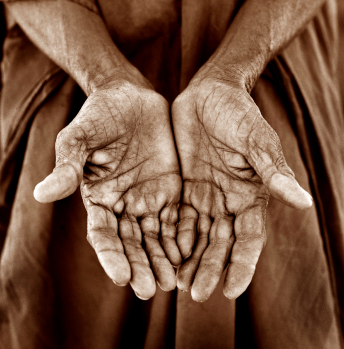 |
| Beautiful Nepal |
I met Chang again a year after after he had been diagnosed with cancer. It was a chance meeting when I was out for my weekend morning walk. He told me almost immediately that he had been diagnosed with cancer and was healing himself using The Gerson Therapy. He gave the impression of someone in control and doing remarkably well.
I felt that the all important question was how he was feeling inside. It is the person's mental and emotional wellbeing that really matters, apart from the physical treatment. Had he been coping well? Was he being supported? For example, we can have the best doctors but if we are feeling really miserable inside, would that not be cause for concern? We have been brought up to think that emotional health is not important. And many times, we do not know how to handle or help people in crises.
From my experience in counselling, I find that there are many lonely people out there, who want to be listened to and acknowledged but are not getting their needs met. What more a person diagnosed with cancer? Being diagnosed with cancer can be an alienating and traumatic experience. It is like having a bomb thrown into one's lap. How does that feel? Can we just pat this person on the back and say "You will be okay. No worries." and leave him to deal with it alone? Or do we find ways to help him deal with it?
He told me that he had lost touch with his emotional world since he started working. I felt sad to hear this because there has been so much literature written on the role of emotions in diseases. I asked him to look into the emotional and spiritual aspects of healing.
After reading about the success of the Thai monk, Kittiyano Bhikkhu in using the Gerson therapy to treat cancer, I suggested that he, too incorporate meditation, yoga and breathing to complete his therapy. I suppose if these practices had not been habitual in healthier times, it would be even more difficult in times of crisis. Change is not a comfortable word for most people, not even when they are faced with a life threatening disease. That is how we human beings are, I suppose. We are creatures of habit.
Chang said that even though he was willing to listen to opinions about his therapies, ultimately it was his choice to make. He said that people were not happy when he did not follow their advice. He also said that only people with cancer understood him when he talked about cancer pain. Maybe there is some truth in that hence the reason for the establishment of cancer support groups.
Chang already had an extra two and a half years of life. He had time to travel, forge closer ties with friends and family and learn some life lessons. And he had a chance to create his own path. He wanted to do things his way and he did. We can argue, what if ....he did not try HIFU? To me, the result would have been the same. If it wasn't HIFU, it would have been something else. He was determined to change his destiny but he learned along the way that some things were just beyond his control. It was not meant to be.
(to be continued......finale Part 3 will be published on Friday)
I felt that the all important question was how he was feeling inside. It is the person's mental and emotional wellbeing that really matters, apart from the physical treatment. Had he been coping well? Was he being supported? For example, we can have the best doctors but if we are feeling really miserable inside, would that not be cause for concern? We have been brought up to think that emotional health is not important. And many times, we do not know how to handle or help people in crises.
From my experience in counselling, I find that there are many lonely people out there, who want to be listened to and acknowledged but are not getting their needs met. What more a person diagnosed with cancer? Being diagnosed with cancer can be an alienating and traumatic experience. It is like having a bomb thrown into one's lap. How does that feel? Can we just pat this person on the back and say "You will be okay. No worries." and leave him to deal with it alone? Or do we find ways to help him deal with it?
He told me that he had lost touch with his emotional world since he started working. I felt sad to hear this because there has been so much literature written on the role of emotions in diseases. I asked him to look into the emotional and spiritual aspects of healing.
After reading about the success of the Thai monk, Kittiyano Bhikkhu in using the Gerson therapy to treat cancer, I suggested that he, too incorporate meditation, yoga and breathing to complete his therapy. I suppose if these practices had not been habitual in healthier times, it would be even more difficult in times of crisis. Change is not a comfortable word for most people, not even when they are faced with a life threatening disease. That is how we human beings are, I suppose. We are creatures of habit.
Chang said that even though he was willing to listen to opinions about his therapies, ultimately it was his choice to make. He said that people were not happy when he did not follow their advice. He also said that only people with cancer understood him when he talked about cancer pain. Maybe there is some truth in that hence the reason for the establishment of cancer support groups.
Chang already had an extra two and a half years of life. He had time to travel, forge closer ties with friends and family and learn some life lessons. And he had a chance to create his own path. He wanted to do things his way and he did. We can argue, what if ....he did not try HIFU? To me, the result would have been the same. If it wasn't HIFU, it would have been something else. He was determined to change his destiny but he learned along the way that some things were just beyond his control. It was not meant to be.
(to be continued......finale Part 3 will be published on Friday)








